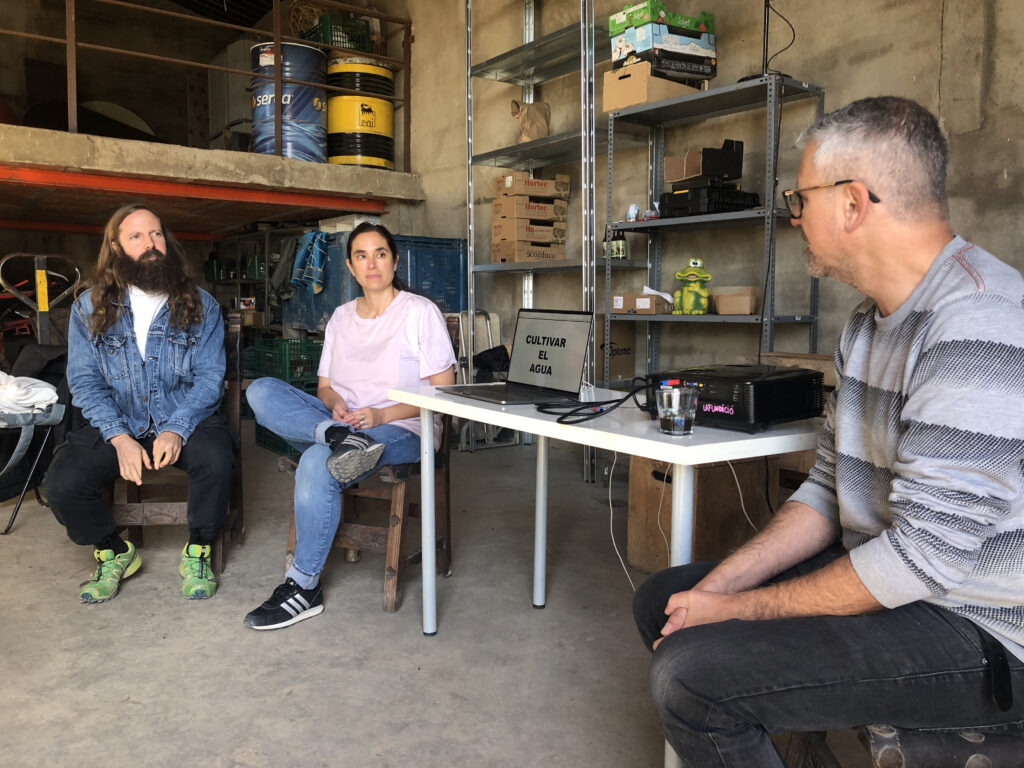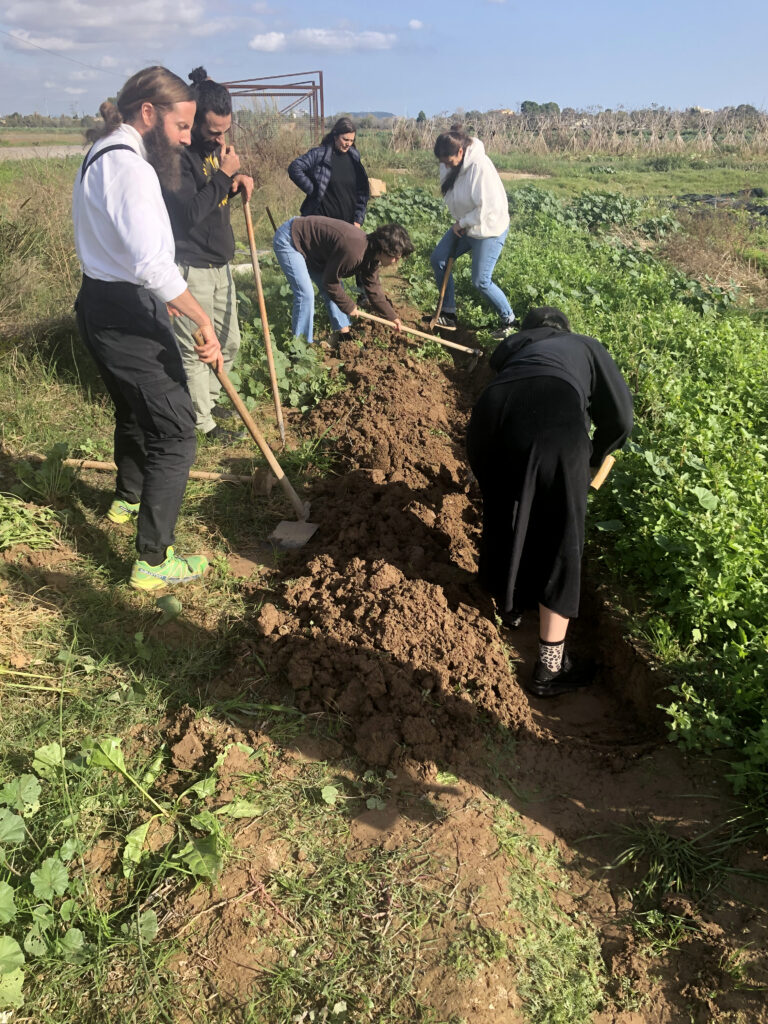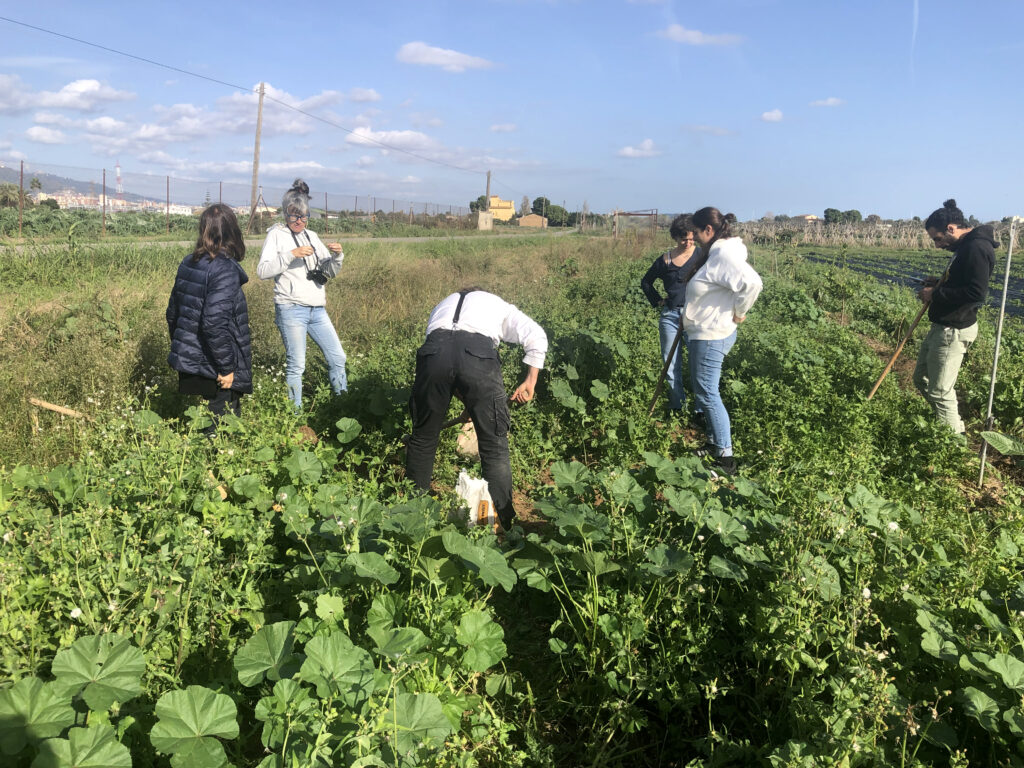

During the months of October and November, we celebrated the Delta 2024 Conference, Culture and agropolitan economies for the ecosocial transition.
We inaugurated the meetings with Adrián Almazán and Fernando García-Dory from INLAND-Campo Adentro, chatting in the Laurel 31 space, in Florida, about Agropolitan culture for the ecosocial transition and good living.
The conference served to situate and frame some of the main issues that we want to raise in the Delta Conference on the relationship between culture, economy and ecology. In his speech, Adrián Almazán situated the debate from the perspective of the
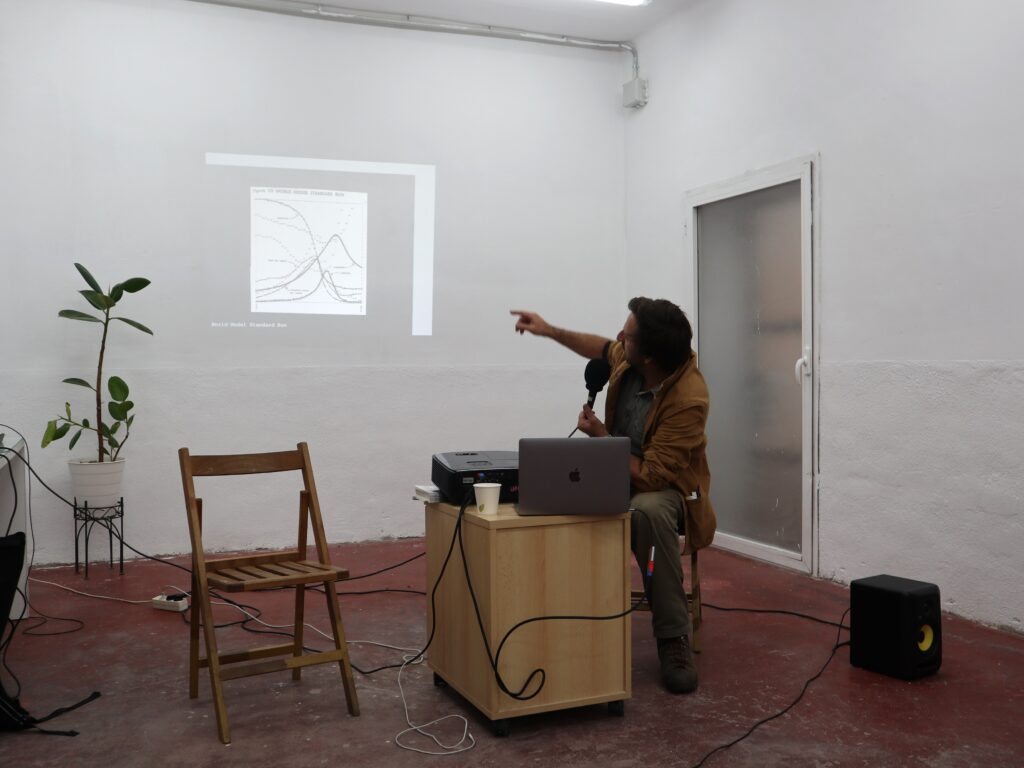
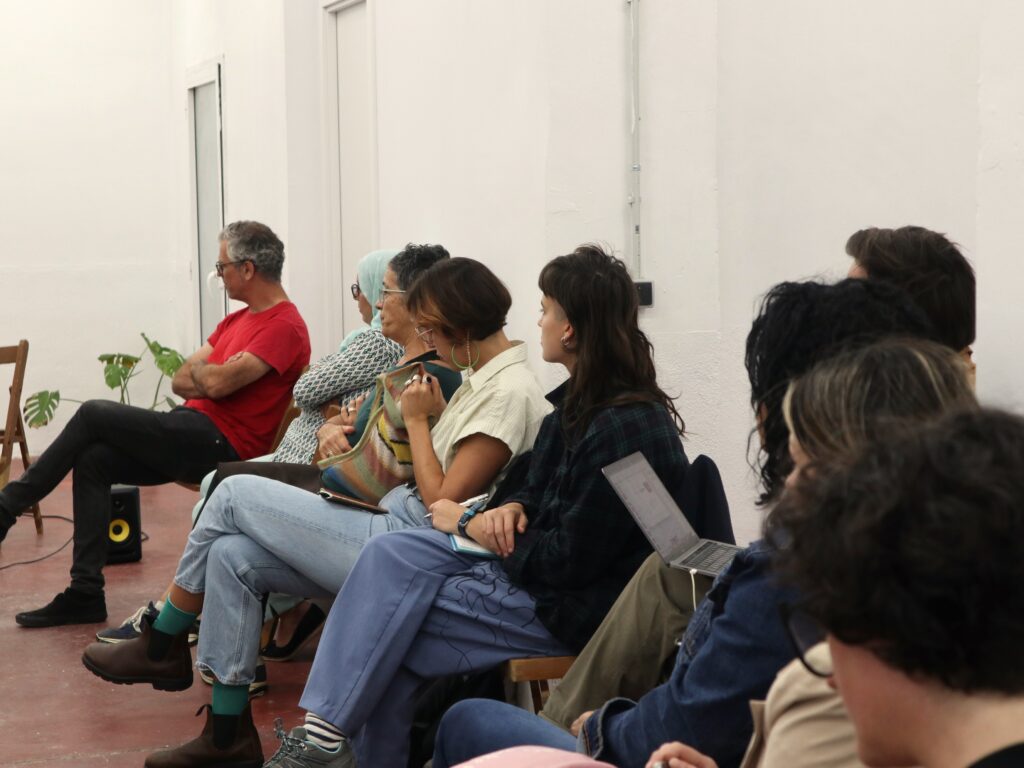
At the beginning of November, on the farm of Les Cabasses, we met with the Tornen les esquelles collective to do a peri-urban wool workshop with the wool from the sheep of Les Basses de Can Dimoni, the last flock that grazes in the Llobregat delta.
Precisely in this workshop, as well as in the one given by Asunción Molinos and Carlos Monleón later on, we tried to investigate in practice the relationships between material production, reproduction of life, economy and symbolic production. Sheep’s wool is currently considered a waste product since its commercialization is not profitable. However, it is still necessary to shear them. From another point of view, wool is a biodegradable material of great value, which not only serves to make clothing, but also as insulation in the garden. The pertinent question is: What alternative economies to capitalism are necessary to create to recover a material with such high use value? During the workshop we collectively made a felted wool tapestry.
In Pomezia, we met with Yayo Herrero and Jaume Grau from Ecologistes en Acció i SOS Baix Llobregat i L’Hospitalet, to chat about the debates and initiatives.
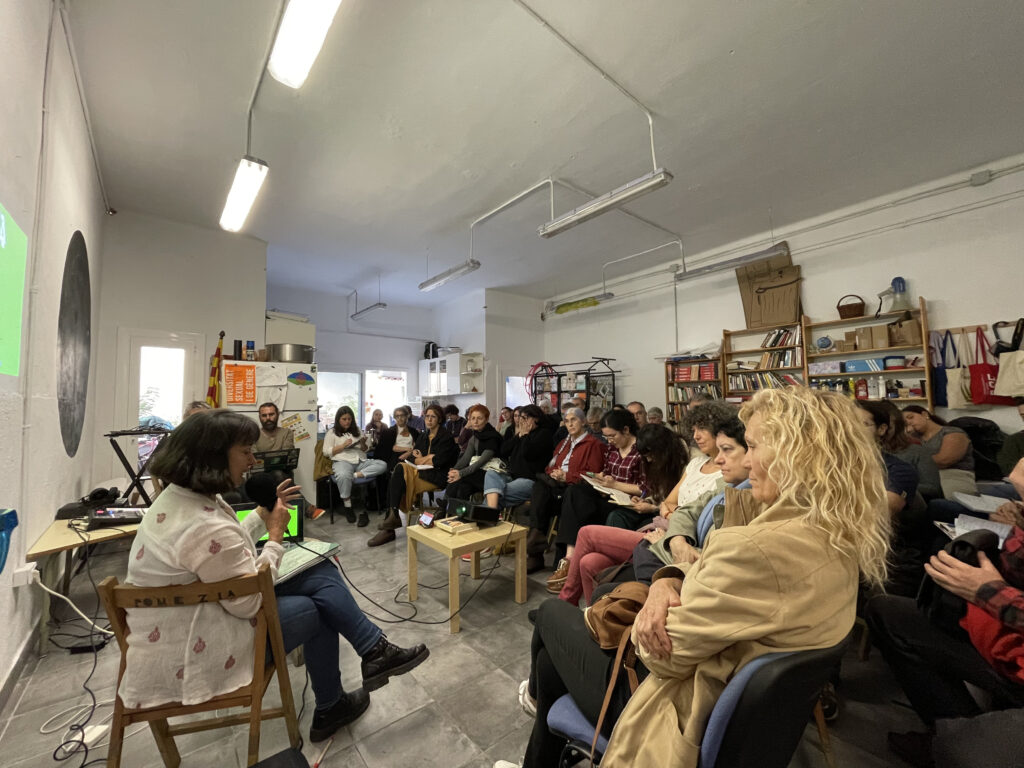
Yayo Herrero, one of the most influential voices of ecofeminism, brought to the table the urgent debates in the context of the “polycrisis” in which we live. According to the researcher and activist, we are in an ecological crisis caused by a political and economic system that threatens life, with war dynamics that destroy social ties. “We call development the idea of destroying our relationship with the land,” she states.
On the contrary, ecofeminism argues, precisely, that all human beings are interdependent and ecodependent.
Herrero points out that degrowth is not a political or ethical option, but is inevitable, it is “the material state in which we will have to live whether we want to or not”. The challenge is to guarantee a fair ecosocial transition that bets on a dignified life for all people.
Jaume Grau, from SOS Baix Llobregat i l’Hospitalet i Ecologistes en Acció, situated the challenges in our territory, with the public presentation of the proposal for ILP Parc Natural i Agrari del delta del Llobregat. He highlights that sixty percent of the delta is already under cement and it is urgent to protect what remains to be urbanized. This initiative will require the effective participation of all sectors, especially the agricultural sector, which is essential to move towards food sovereignty. He states: “We cannot lose even an inch more. We must bet on profound changes in the management of the territory.”
At the end, the public contributed reflections in relation to fear, eco-anxiety, the need for a plain language that makes us recognize the phenomena accelerated by climate change more easily, as well as the need to make changes in our way of consuming so that they have a positive impact on the environment.
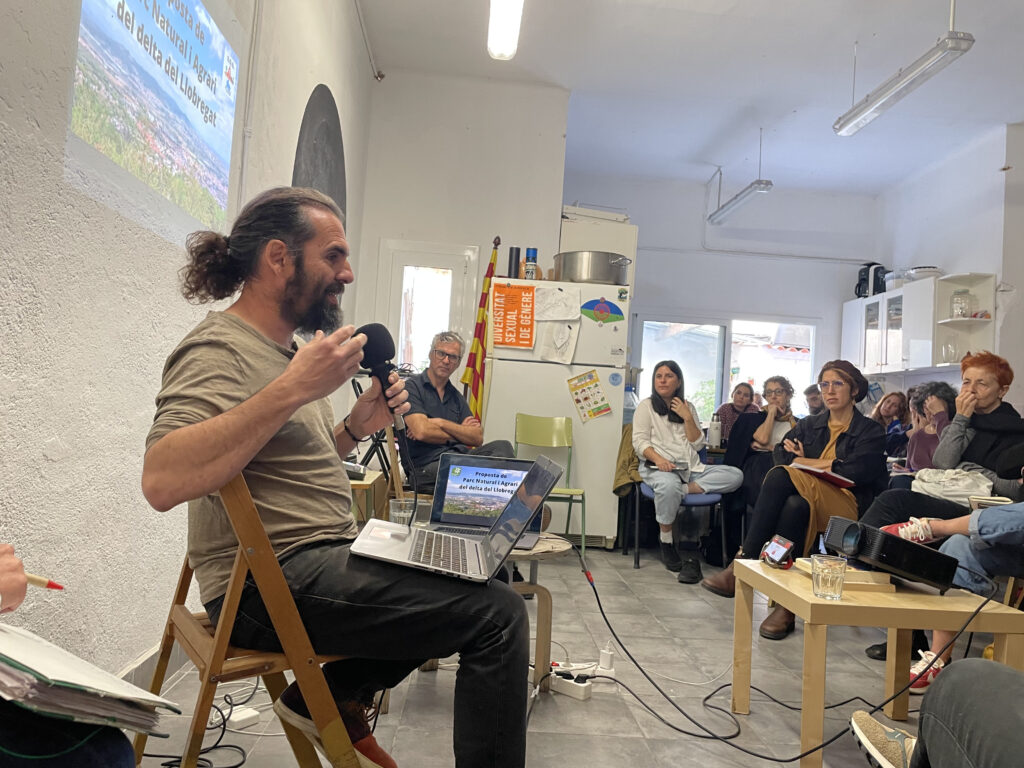
Finally, we ended the conference with a workshop, again in Les Cabasses, on systems for replenishing water resources with Asunción Molinos and Carlos Monzón. They told us about traditional techniques for ‘planting’ or ‘cultivating water’ and feeding aquifers. While modern agro-industry follows an extractivist logic, peasant knowledge is based on the need to replenish the common-use resources on which the sustenance of life in the place inhabited depends —and that is why they are situated knowledge—.
On the contrary, extractivism is guided exclusively by the profitability of investments. Once the resources of a place have been exhausted, it is “enough” to abandon it, ruined, and go to a new one —until there are no places left to plunder—.
Days later, Sole, our neighbor from La Florida, explained to us that in her town, in Cáceres, she participates in a project to recover the ancestral irrigation ditches, there called ‘pesqueras’. This coincidence reaffirms us in the idea that the rural and the urban are not two completely separate territories, but united, among other things, by the memory and the vital trajectories of those who inhabit them.
